15 Of The Most Unhealthy Foods In The World
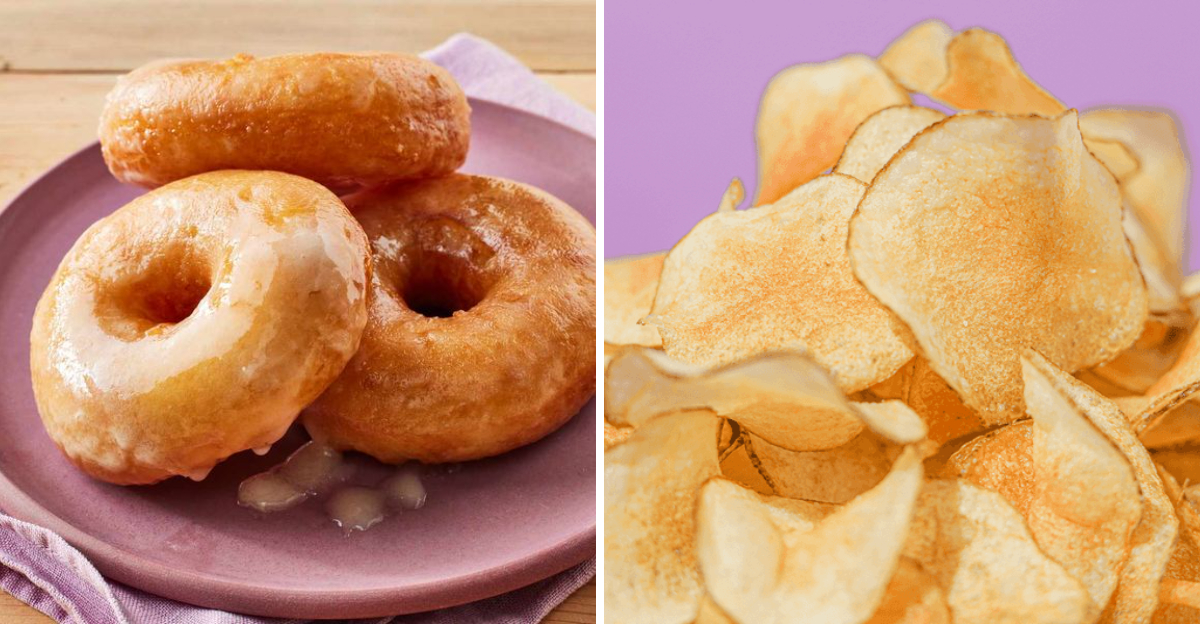
In today’s fast-paced world, convenience often takes precedence over nutrition. Here are 15 of the most notoriously unhealthy foods globally—often ultra-processed, high in calories, and loaded with unhealthy fats, sugars, and sodium. While these may be tempting, regular consumption can raise the risk of heart disease, diabetes, and other chronic conditions. From deep-fried delights to sugary sips, let’s explore what makes these foods so harmful and why moderation is key.
1. Deep-Fried Twinkies

Delving into the realm of indulgence, deep-fried Twinkies turn an already sugary treat into a calorie-dense delight. When the classic snack, known for its creamy filling, meets sizzling oil, it transforms into a golden, crispy version of itself, appealing to those seeking an over-the-top experience.
The batter adds layers of fat and oils, amplifying the calorie count significantly. Each bite is a burst of sweetness and texture, but beneath the pleasure lies a concoction of artery-clogging ingredients.
While it may delight at fairs and carnivals, think twice before making it a staple. Moderation is key.
2. Soda (Regular, Sugary Varieties)
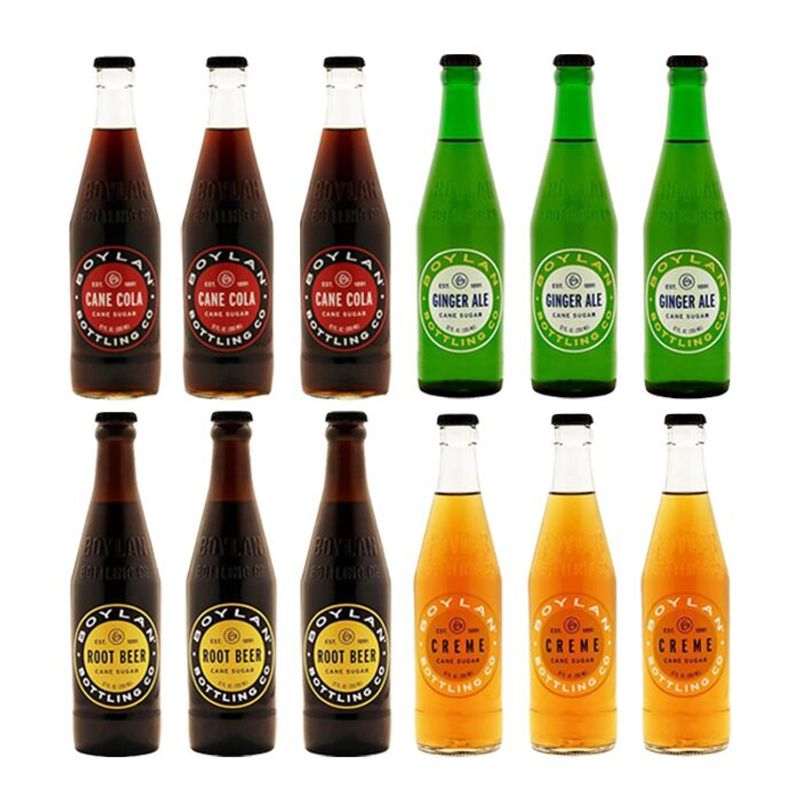
Often enjoyed for its fizzy and sweet allure, regular soda masks a concerning reality beneath its bubbly surface. These sugary varieties are packed with high-fructose corn syrup, offering no nutritional value while contributing significantly to daily sugar intake.
Linked strongly to obesity and metabolic disorders, soda’s appeal is deceptive, with its refreshing taste often overshadowing the health implications.
A seemingly innocent can of soda can contain as much sugar as several desserts combined, making it a primary contributor to daily excess. Reconsider that next fizzy fix for a healthier choice.
3. Processed Meats (e.g., bacon, sausages, hot dogs)
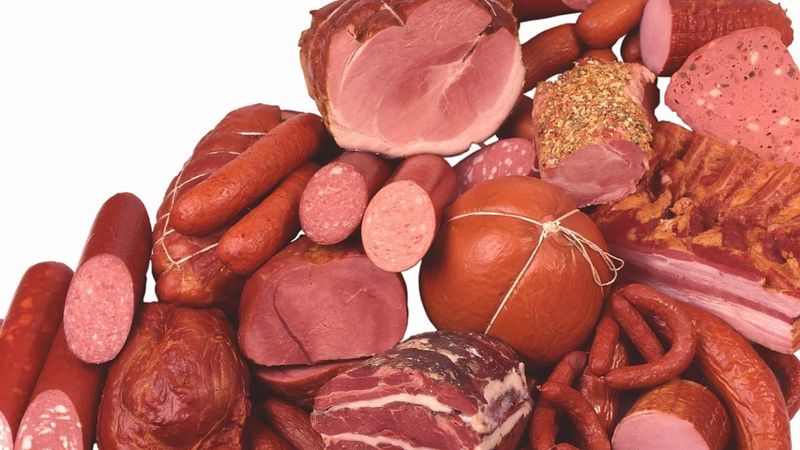
Indulging in processed meats offers a quick burst of flavor but raises numerous health flags. These meats, often cured with nitrates, are high in saturated fats and sodium, making them a staple in many diets despite warnings.
Classified as carcinogenic by the World Health Organization, their frequent consumption links to increased cancer risks. The convenience and rich taste can often overshadow these concerns.
While they may enhance your breakfast platter or barbecue, moderation and mindful alternatives can help reduce potential health risks. Consider leaner cuts and fresh options instead.
4. Margarine (with trans fats)

Margarine, especially in its stick form, often hides harmful trans fats that impact heart health. These fats raise bad cholesterol while lowering good cholesterol, setting the stage for cardiovascular issues.
While margarine may appear as a healthier butter substitute, the reality is more complex.
The convenience and spreadability of margarine make it a kitchen staple, but choosing versions without trans fats or selecting natural butter can offer a healthier alternative. It’s crucial to read labels and choose wisely to avoid unintended health impacts.
5. Packaged Instant Noodles
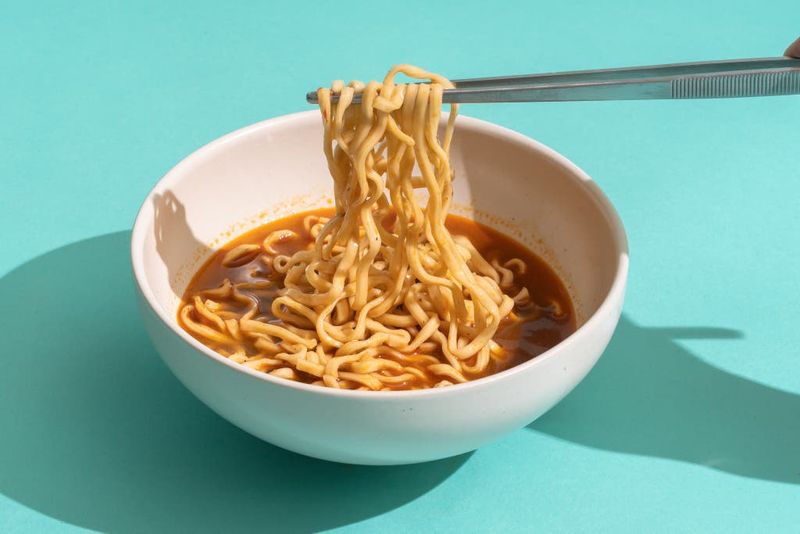
Packaged instant noodles are a go-to comfort food but come with a hefty nutritional cost. High in refined carbs, sodium, and unhealthy fats, they offer minimal protein, fiber, or vitamins.
The convenient preparation and taste often mask the potential downsides.
While convenient for a quick meal, the high sodium content and lack of nutrients make them a poor dietary choice over time. For those craving noodles, exploring whole grain or vegetable-based alternatives can provide a healthier twist without compromising on flavor.
6. Potato Chips
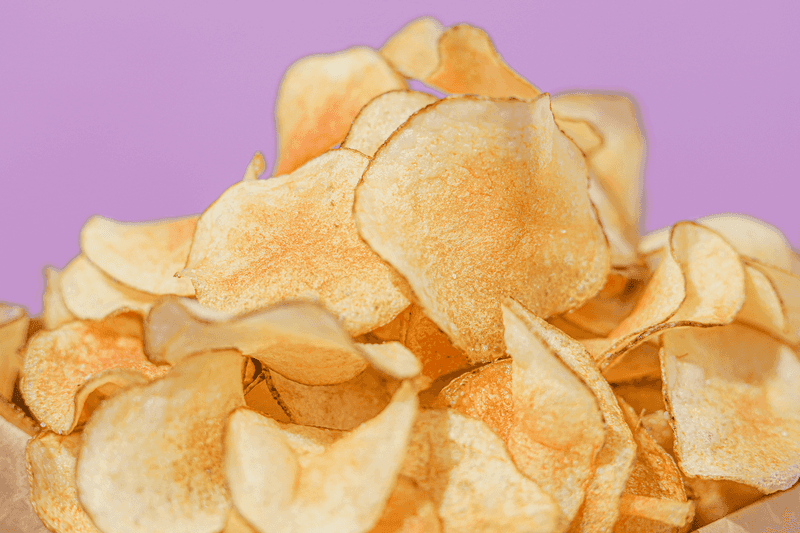
Potato chips, with their addictive crunch and salty flavor, are a party favorite but bring health concerns to the table. High in refined oils and sodium, these chips contain acrylamides formed during high-heat cooking, adding potential health risks.
Their low satiety value means it’s easy to overindulge without feeling full.
While they may satisfy a salty craving, opting for baked versions or homemade veggie chips can provide similar satisfaction with fewer health drawbacks. Balance is essential to enjoying these crispy delights without the guilt.
7. Sugary Breakfast Cereals
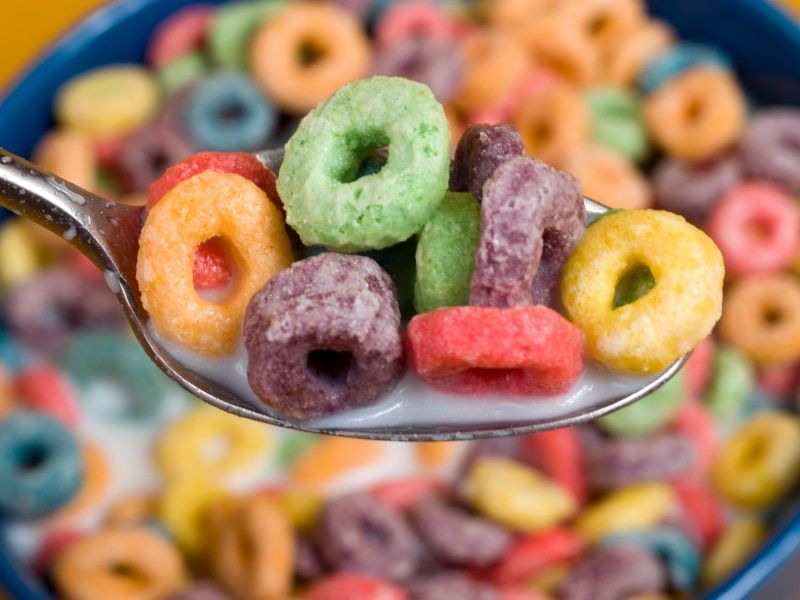
Often marketed as a wholesome start to the day, sugary breakfast cereals carry more than just a sweet crunch. Loaded with added sugars and refined grains, these cereals can spike blood sugar rapidly.
Despite their vibrant appearance and appeal to children, they often lack essential nutrients needed for a balanced breakfast.
Switching to whole-grain options or adding fresh fruits can make breakfast more nutritious. It’s important to look beyond the marketing and focus on the ingredient list to ensure a healthy start to the day.
8. Fast Food Burgers (Large, Loaded Versions)
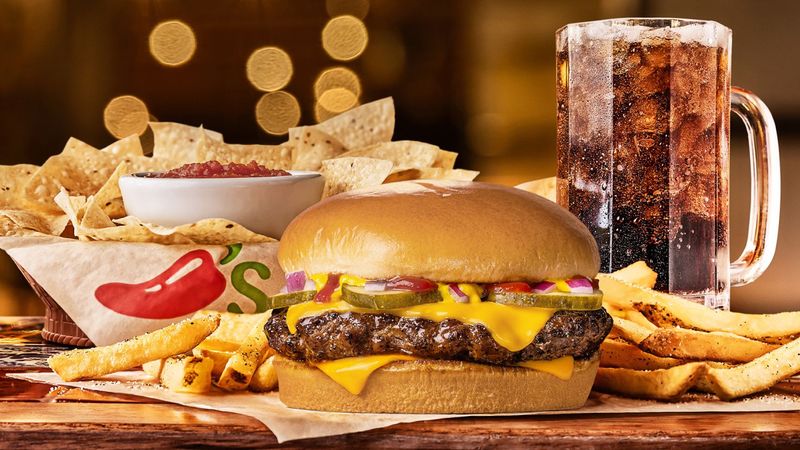
Fast food burgers, especially the large and loaded ones, are a quick fix for hunger but can pack a nutritional punch. Loaded with calories, sodium, saturated fats, and additives, these burgers can easily exceed daily nutritional limits.
Their convenience and taste often eclipse the potential health risks they pose.
While satisfying cravings, consider opting for smaller portions or homemade versions to control ingredients and preserve health. Making mindful choices about toppings and accompaniments can also help balance indulgence with nutrition.
9. Artificially Flavored Ice Creams

Artificially flavored ice creams are a beloved treat, but their vibrant colors and flavors can be deceiving. Many commercial brands are packed with artificial flavorings, stabilizers, and excessive sugars and fats.
While they delight taste buds on a hot day, the long-term health impacts of these additives are concerning.
Choosing brands with natural ingredients or making homemade versions can offer indulgence without the hidden health risks. It’s important to savor these treats in moderation and be conscious of ingredient quality.
10. Canned Cheese Products (e.g., spray cheese)
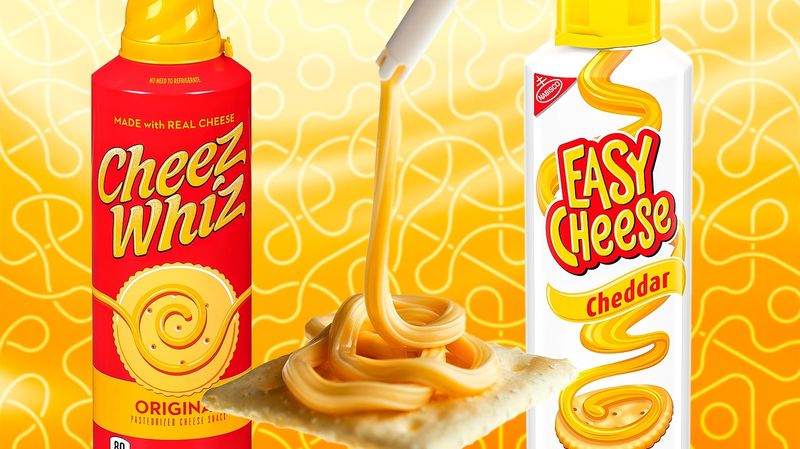
Canned cheese products, like spray cheese, offer convenience but come with a heavy dose of preservatives and sodium. These highly processed products contain little actual cheese content, often relying on artificial flavorings.
The ease of dispensing cheese might appeal for quick snacks, but it’s important to consider the nutritional drawbacks.
Opting for real cheese or homemade cheese spreads can provide better taste and nutritional content. Being mindful of labels and ingredients helps ensure better dietary choices.
11. Frozen Pizza (Ultra-Processed Varieties)
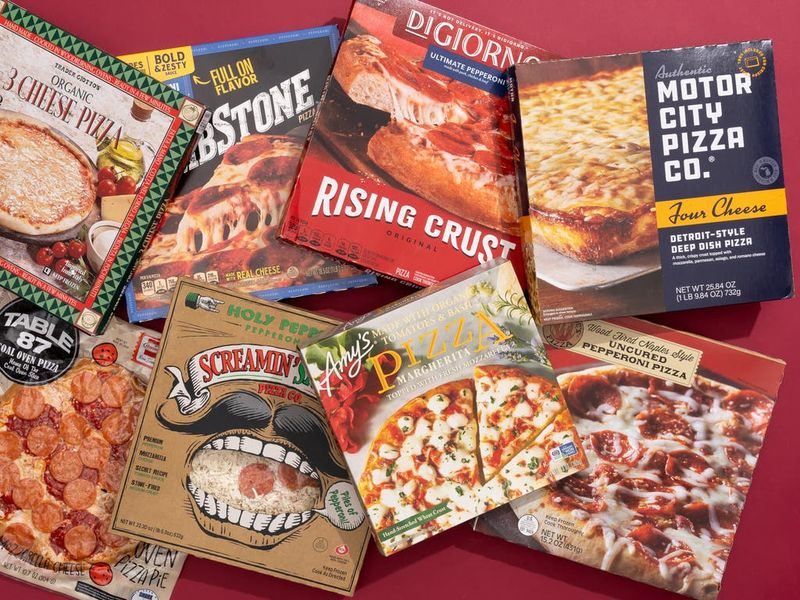
Frozen pizzas, especially ultra-processed varieties, offer convenience but are laden with trans fats, processed meats, and high sodium. The ease of preparation often overshadows these health concerns.
While they make for an easy meal solution, frequent consumption can lead to health issues.
Choosing pizzas with whole ingredients or making homemade pizzas can enhance nutritional content and taste. Being conscious of toppings and portion sizes can help balance convenience with health.
12. Fried Chicken (Fast Food Style)

Fast food-style fried chicken is a crispy delight but comes with its share of nutritional pitfalls. Battered and deep-fried in unhealthy oils, each serving is often loaded with excessive sodium and calories.
While its flavor and texture are undeniably tempting, the health implications are significant.
Opting for grilled or baked alternatives can offer similar satisfaction without the added fats. When indulging, it’s wise to enjoy in moderation and balance with healthier meals.
13. Candy Bars
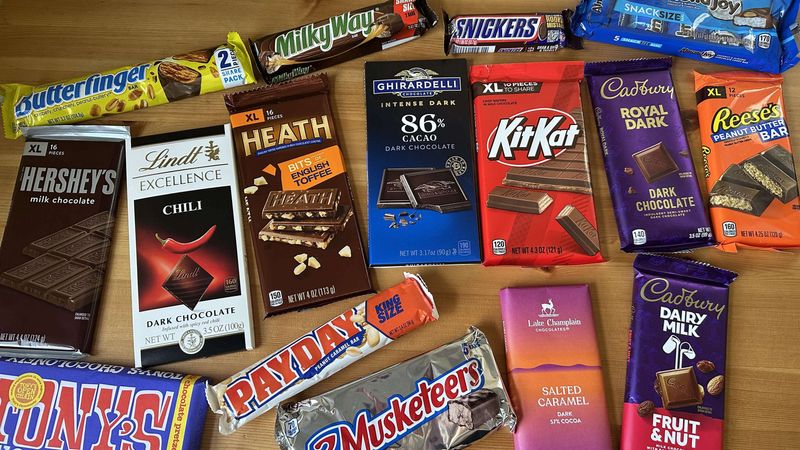
Candy bars, with their sweet allure, offer a quick energy boost but little nutritional benefit. High in sugar, saturated fat, and calories, they often lead to blood sugar spikes.
Their delightful textures and flavors can be enticing, masking the health issues they may cause.
Enjoying them as an occasional treat rather than a daily indulgence can help manage sugar intake and overall health. Exploring dark chocolate options with minimal sugar can offer a healthier alternative for satisfying sweet cravings.
14. Energy Drinks
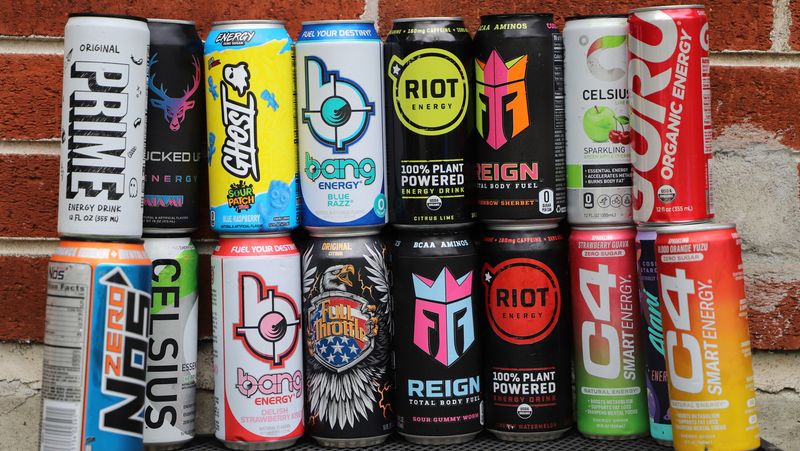
Energy drinks promise a quick boost but are loaded with caffeine, sugar, and synthetic ingredients. These elements can strain the heart and nervous system, especially when consumed in large amounts.
While they offer a temporary energy surge, the subsequent crash is often overlooked.
Switching to natural energy sources like nuts or hydrating with water can provide sustained energy without adverse effects. It’s crucial to limit intake and be cautious of potential side effects.
15. Doughnuts
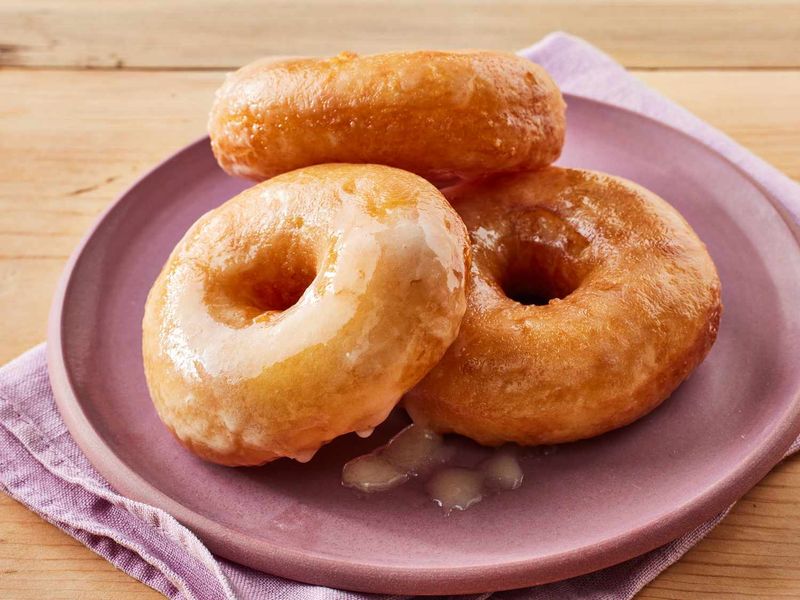
Doughnuts, with their inviting aroma and sweet taste, are a treat with a hefty caloric content. Deep-fried and covered in sugar or icing, they’re high in refined carbs and fats, offering little nutritional value.
Their vibrant appearance can often lead to overindulgence without realizing the dietary impact.
Considering them as an occasional pleasure rather than a regular snack can help maintain health. Pairing with fruits or opting for baked versions can provide a satisfying, healthier twist.
